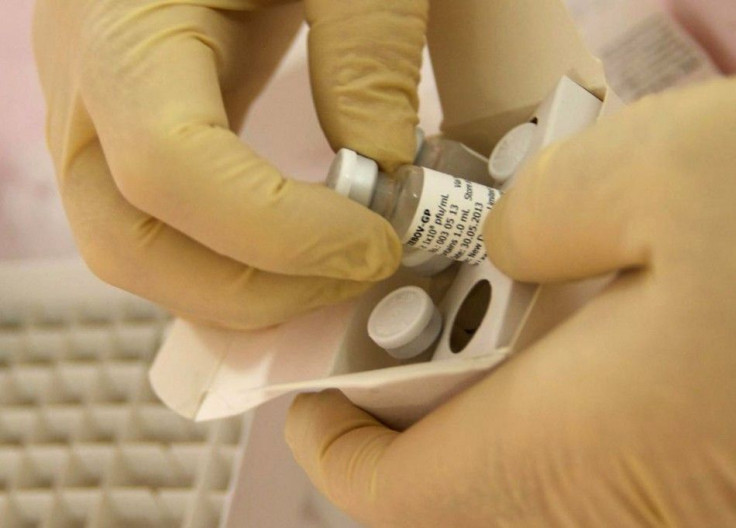Canada Conducts Practice Drill Of Ebola Rapid Response Teams, To Send Experimental VSV-BOV Vaccine To WHO

Canada on Sunday conducted a series of practice drills to see how fast and efficient the rapid response teams created are to respond in case an Ebola virus has managed to enter the country. Canada has five Ebola rapid response teams.
This, as Canada committed to send to the World Health Organisation 800 vials of its experimental Ebola virus disease vaccine VSV-EBOV. Human clinical trials have already began on the VSV-EBOV. The vaccine will be sent to the WHO in three shipments.
Canada has had its share of Ebola scares, but all had yielded negative results. Thus, it continues to enjoy zero incidence of the Ebola virus. But Health Minister Rona Ambrose said the country should not be complacent on such matters. She said medical teams and experts should continuously do "drills, dry runs, and practices" are most essential so as to ensure that Canada is able to respond without hesitation in the event of a case of Ebola.
Simulation drill of an Ebola Rapid Response Team loading the plane with personal protective equipment pic.twitter.com/er2y4lkZqd
— Rona Ambrose (@MinRonaAmbrose) October 19, 2014
Each of the five Ebola rapid response teams has a field epidemiologist, an infection control expert, a bio-safety expert, a laboratory expert, a communications expert and a logistics expert. Four aircraft that has been designated to carry key equipment and staff are stationed in Winnipeg and Ottawa, at two planes each.
On Saturday, Prime Minister Stephen Harper warned Canadians that in an age of globalization and particularly global trade and travel, a virus problem that was at one time far away from us could arrive at our shores very quickly. The practice drills will help ensure each and everyone knows what to do at exactly when.
In the event, Canada confirms its first Ebola case, one of five available teams would be immediately deployed to work with the provincial/territorial and local health authorities to provide surge capacity, additional resources and complementary expertise. These procedures are meant to prevent any further spread of the disease.
The teams are mandated to ensure that all the necessary containment protocols are followed, contact tracing, laboratory expertise, proper use and removal of personal protective equipment. They are also to provide the required supplies from the National Emergency Strategic Stockpile, such as masks, gloves and face shields. Moreover, vials of Canada's experimental Ebola vaccine would be sent independently to the affected hospital as an added precaution.
The experimental Ebola virus disease vaccine VSV-EBOV has been proven to be effective in tests conducted on other primates. The clinical tests to prove its effectiveness on humans are being conducted at the Walter Reed Army Institute of Research. Results are expected to be released on December.
A video of Canada's Ebola rapid response team practices deploying to a simulated case of Ebola has been uploaded by the Public Health Agency of Canada here.
Related:
Ebola 'Cruise Ship': Holidaymakers Furious Organisers Hid the Truth About Dallas Health Care Worker
Made in Canada Ebola Vaccine Begins Human Clinical Trials, Results Expected December 2014
Ebola Update: China Develops Vaccine, Hopes For Early Approval; Mortality Rate Now at 70%, WHO Reports 4,447 Ebola Deaths





















